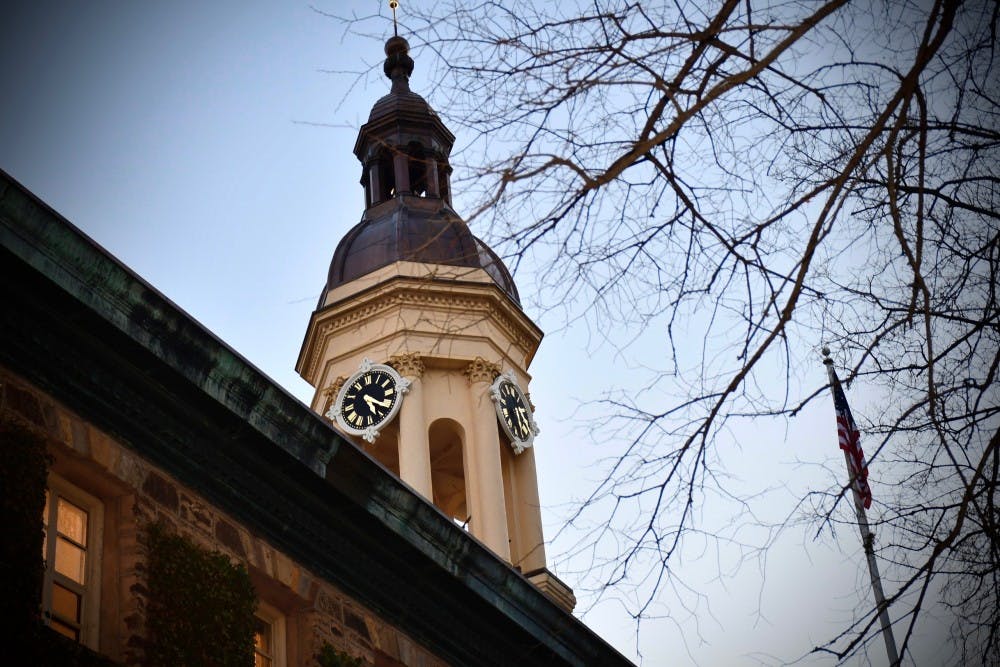Last week, students received an email from Dorian Johnson, Director of Housing and Real Estate Services, notifying them about issues with the randomization process through which students are assigned to select their dormitory rooms. The announcement prompted a bevy of questions and thoughts regarding the current, randomized system, as well as the University’s decision to offer financial compensation, in lieu of a new room draw, to students disadvantaged by the error.
Multiple rising seniors initially contacted Housing about their room draw times having been affected by a perceived error in the randomization process. The students also expressed confusion about the process.
One female student had been told she was affected by the non-randomization of room draw because she was in the lower half of the senior class draw group. Later, however, she received two emails: the first reading that the previous email had been “recalled,” and the second notifying her that she was in fact not “eligible for compensation” because she was not in the lower half of the senior class draw.
“I was like, ‘how are you doing your math?’” she said. “They literally said, ‘lower half of your class’s draw.’”
Upon emailing Housing for clarification, she was given her group number, which was not in the lower half of the senior class draw. Thinking the numbers were “mathematically impossible,” she checked online to discover that the Housing room draw sheet had been changed, with all independents removed to create “just a completely new draw sheet.”
“I kept asking for transparency,” she said. “I wanted to know how to calculate it ... if you are ... acknowledging that you did this incorrectly, I want to have those conversations.”
This is not the first time that concerns about housing randomization have been raised among the student body or with Housing itself.
Natalie Collina ’19, while no longer drawing for a room, described the issue as somewhat “unsurprising,” given the number of people she knows that have been thinking about and talking about the issue.
“It’s just shocking that this is actually something that’s happened, that somehow housing failed to randomize according to weight something, which seems like something that anyone in COS 126 could have coded up,” she said.
She remembers last year, “anecdotally,” that it seemed there were correlations in time between people across different room draw lists. In other words, those who were low in one room draw list were also low in another.
“A lot of people said, ‘oh, the people that are right above us were the same ones that were right above us the year before,” Collina said. “It seems really unlikely to me that it worked well that year.”
“I’m sure that, given that these rumors have been going on for at least two years, this was probably also a problem last year,” Collina said.

Reilly Bova ’20 said that he emailed Housing in March about his concerns regarding an unusually high correlation between draw times of the same groups in different room draws, such as between independent and upperclass students room draws.
He said, however, that his concerns were not taken seriously and finds it upsetting that the problem was not caught sooner. He also doubts that rising seniors were the only ones affected.
“It’s possible their hands were tied once students had already signed contracts,” Bova said.
Rod Eric Joseph ’20 was another of the students notified by Housing that their room draw may not have been completely randomized.
Joseph, however, did not feel as if the financial compensation was sufficient, especially considering that he has been placed at the bottom of the room draw list for two consecutive years.
“I appreciate that they’re ... issuing any compensation at all, ... [but] I do think that they should have just redone the entire upperclass students room draw,” he said.
Like Joseph, other students had mixed views on the decision to offer financial compensation in lieu of redoing the room draw process. Some also called the $1,000 amount into question, especially in relation to its proportion of total housing costs.
According to the University website, the approximate room charge for the 2019–20 year is $10,090.
Others questioned why only the upperclass students room draw list was addressed and how Housing could be sure that underclass students and other draw lists were not affected.
Wesley Wiggins ’21 said that he was very surprised when he first heard about the general email to students. He said this was his first time hearing of room randomization concerns.
“The only thing that they can give them is $1,000, and like, it’s a lot of money, but it’s not gonna make up for the fact that they were ... short-changed in housing two years in a row,” he said. “... Hopefully this will push the University to start re-evaluating how they select housing for students.”
He thought the offer of compensation over choosing to redo room draw entirely was unfortunate, but comparatively easier given the available options.
“I just hope that the University kind of takes this issue really seriously,” he said. “Where you’re housed really affects ... how you perform and how your mental health is doing, so hopefully the University takes that into account and seriously re-evaluates how they’re re-doing the housing system and how they can really improve it to be better for everyone.”








